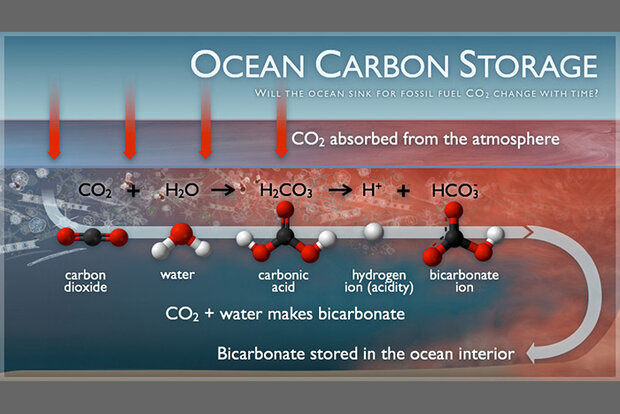Landmark study indicates weakening of ocean carbon sink

The ocean acts as a natural sink for carbon, transporting it to the deep ocean. Credit: NOAA PMEL

The ocean acts as a natural sink for carbon, transporting it to the deep ocean. Credit: NOAA PMEL
A landmark study published last week demonstrates that the ocean’s role as a carbon sink and its ability to store anthropogenic, or human-caused, carbon may be weakening. A collaboration among international researchers, this study captures a snapshot of two decades of global interior ocean measurements to determine the change in ocean storage of carbon emitted due to human activity and what it suggests about the future under a changing climate.
“We will not achieve the desired outcome of decreasing emissions if we don’t account for the natural sinks,” explained Rik Wanninkhof, Ph.D., an author on the paper and an AOML scientist leading the Ocean Carbon Cycle Group. “As we work towards achieving net zero emissions, we are expecting natural sinks to behave the way they have in the past… and if they don’t, we’ll have to decrease our emissions even more than expected.”
Global ocean accumulation of anthropogenic carbon, referring to carbon emitted due to human activity, has increased proportionately with human emissions since the industrial period (~1800), thus one could expect it to continue increasing over the 20-year study period with emissions. From 1994 to 2004, global ocean storage of anthropogenic carbon increased by an estimated 29 billion metric tons (denoted in the study as Pectagrams, Pg C) of carbon. However, from 2004 to 2014, the global ocean storage of carbon dioxide increased only by 27 billion metric tons.